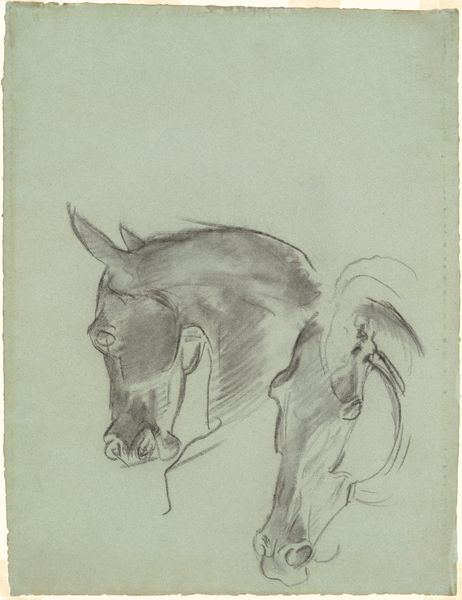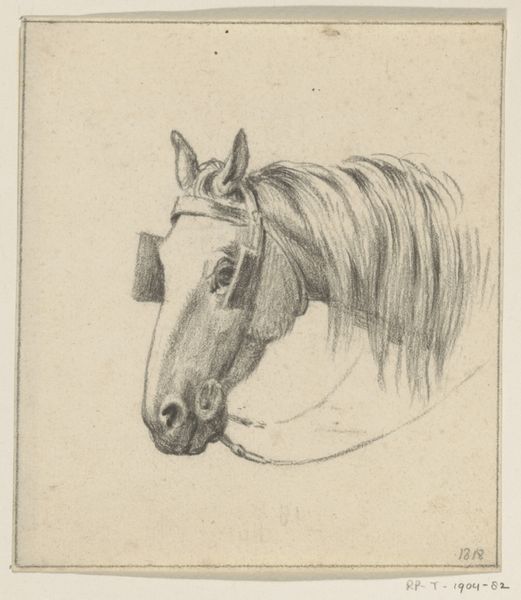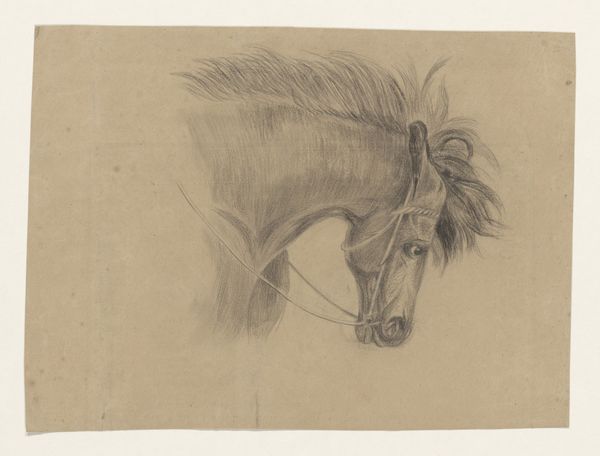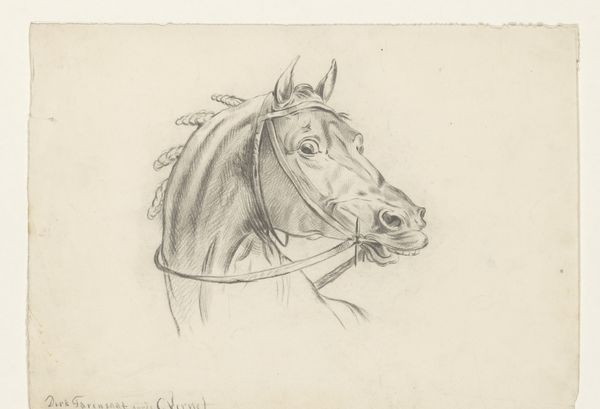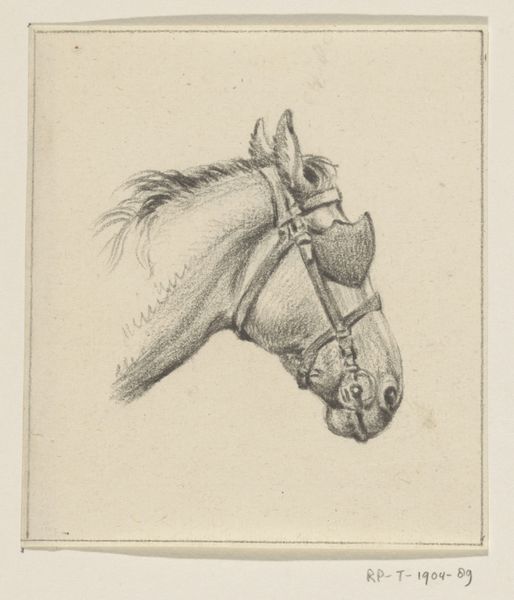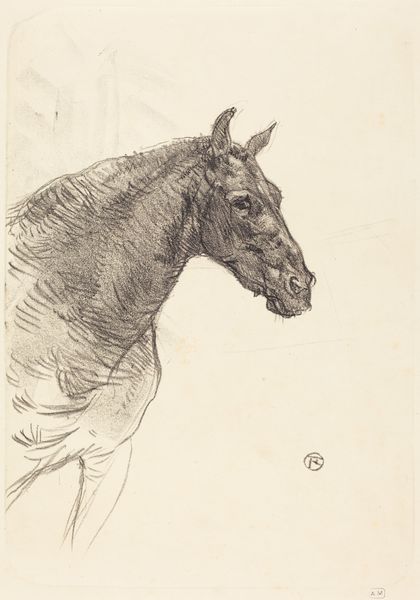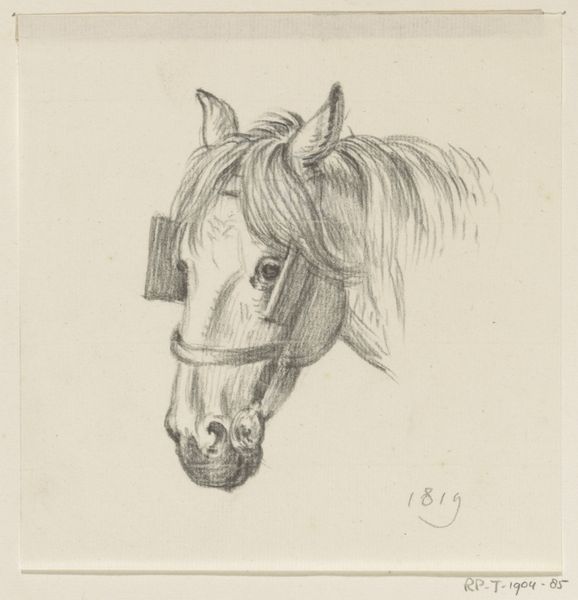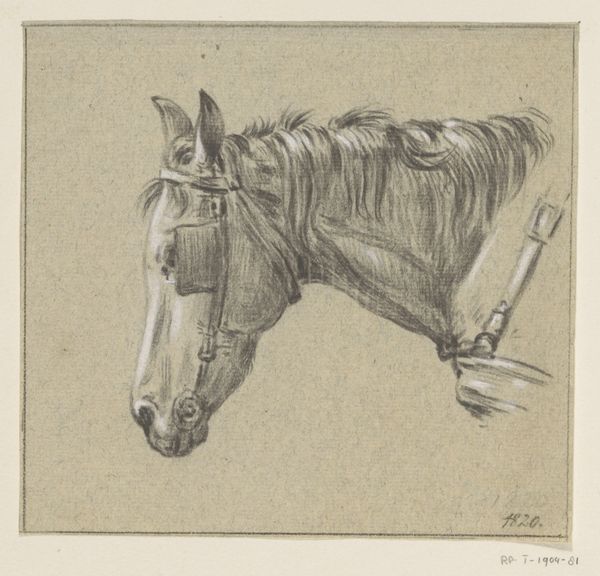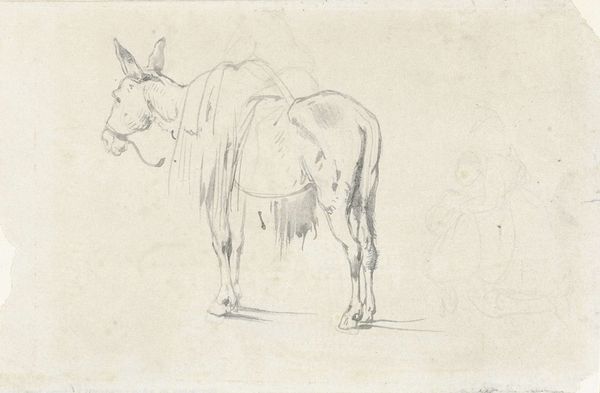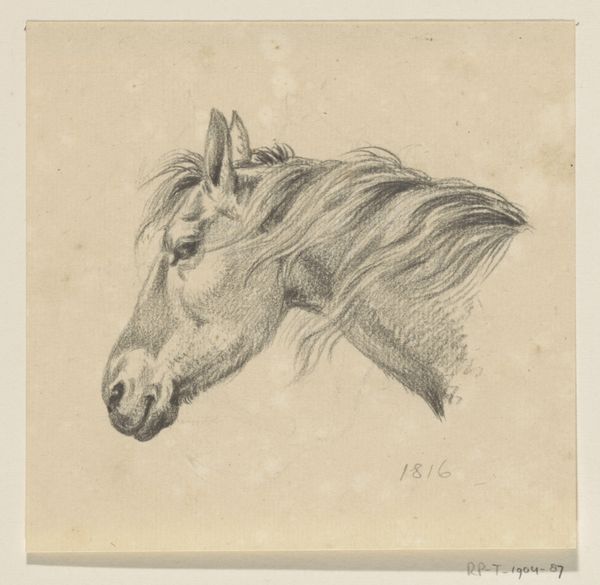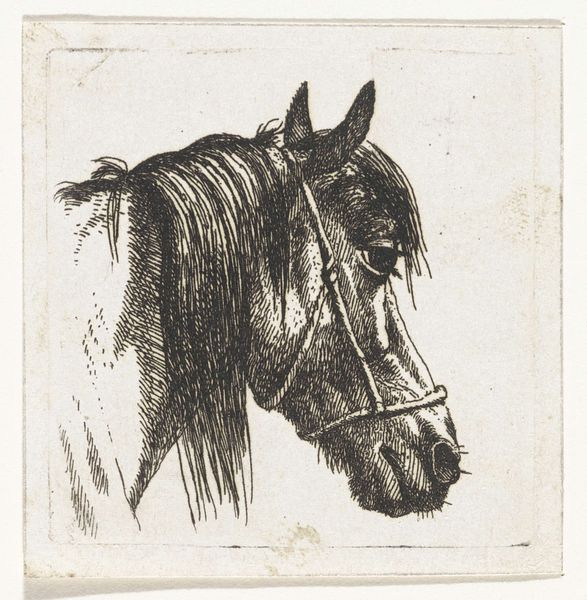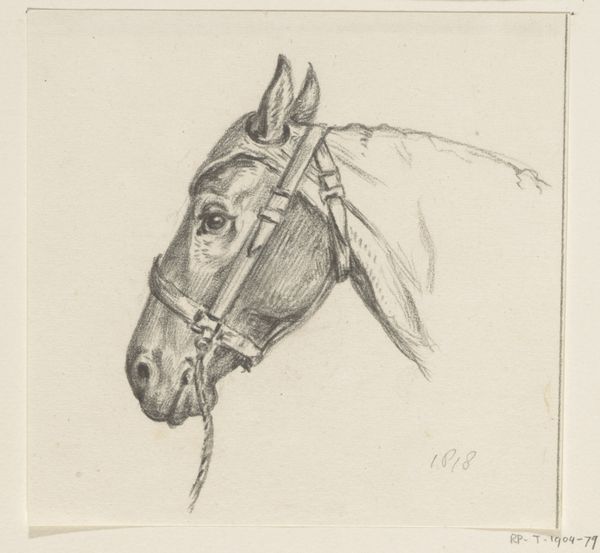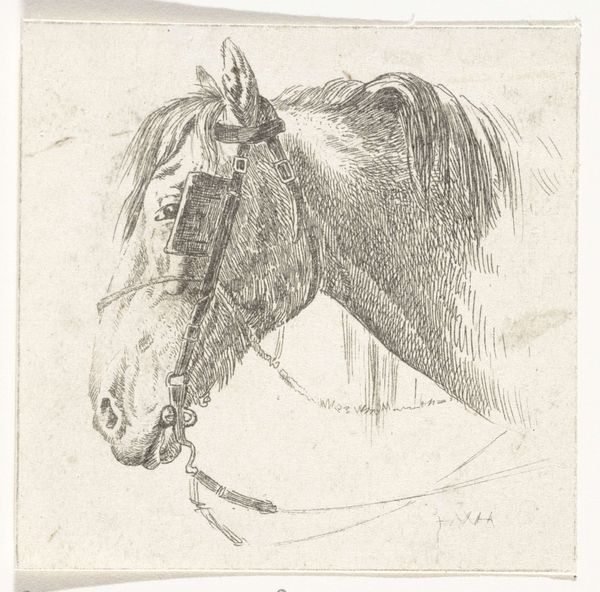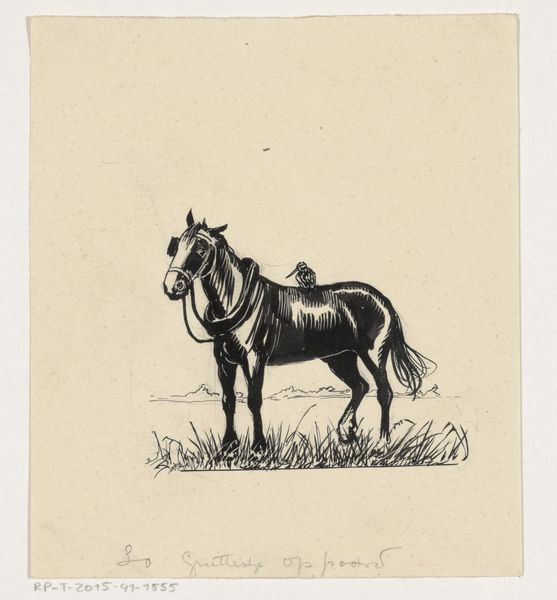
drawing, graphite
#
portrait
#
drawing
#
animal
#
horse
#
graphite
#
realism
Dimensions: height 207 mm, width 182 mm
Copyright: Rijks Museum: Open Domain
Editor: This is "Paardenhoofd met halster," or "Horse Head with Halter," a graphite drawing by Anthony Jacobus Offermans, sometime between 1809 and 1872. I find it quite detailed for a drawing. How would you interpret this work? Curator: Observe the meticulous use of line to define form and texture. Notice how Offermans employed hatching and cross-hatching to create tonal variations and simulate the three-dimensionality of the horse's head and the complexity of the halter. The composition emphasizes the geometric structure beneath the organic form. Editor: So, it’s less about what it represents, and more about how it's put together? Curator: Precisely. The aesthetic value resides in the formal relationships. Note the contrast between the smooth areas of the paper and the density of the graphite markings. Consider how the harness's ornate details offset the stark background and the rough, unfinished sketch of the donkey’s body. How do these contrasting elements interact? Editor: The sharpness of the halter and the blurry, incomplete lines behind really make me focus on what's right in front. I see what you mean about the composition guiding my eye. Curator: Yes, and observe how Offermans's careful attention to detail—for instance, the texture of the horse's hair—serves the larger purpose of a balanced and engaging visual experience. It's through these intrinsic qualities that we perceive the artistry. Editor: It's interesting how looking at the art this way shows the attention to detail instead of what I first thought about it, just being a picture of a horse. Thanks for explaining that! Curator: Indeed. It is in deconstructing the elements of art that we gain an appreciation for their arrangement.
Comments
No comments
Be the first to comment and join the conversation on the ultimate creative platform.
